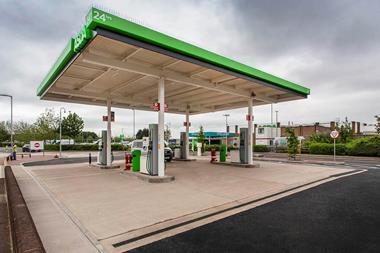Successive governments have claimed they want to cut the red tape tying businesses in knots, and then piled on plenty more, but changes introduced on October 1 really have simplified the regulatory framework for petrol filling stations.
The new Petroleum (Consolidation) Regulations 2014 which came into force on October 1, replaced the existing rules on petrol storage revoking eight pieces of legislation dating back as far as 1928, one approved code of practice and an approved document, L93.
An industry expert describes the new legislation as the most significant changes to petroleum legislation since the introduction of the Petroleum Consolidation Act (PCA) in 1928.
The new regulations clear up a muddle that resulted when the Dangerous Substance & Explosive Atmospheres Regulations (DSEAR) came into force in 2002. The Health & Safety Executive (HSE) had intended to follow this up with a modernisation programme that would have removed the old petrol filling station regime, but it never happened, resulting in a duplication of controls from DSEAR and PCA which in some cases conflicted.
The new regulations have removed the requirement to hold a licence for the storage of petroleum spirit. Instead there is a petroleum storage certificate issued by the local Petrol Enforcement Authority (PEA), which is issued to the premises rather than operator. For petrol filling stations currently in business their existing licences will remain in force until they expire. Then, if the storage conditions remain unaltered, they will be converted to a storage certificate.
However, if a "material change" takes place before the licence expires then a storage certificate will be required. The regulations define "material changes" as:
ceasing use of one or more of the petrol storage tanks;
removing or permanently de-commissioning one or more of the petrol storage tanks;
installing any tank, pipe work or vapour pipe work associated with the storage and dispensing of petrol;
installing any petrol pump, any other automotive pump, or dispenser in a new location.
In all instances, the PEA must be notified of changes at least 28 days before any work takes place. As the storage certificate applies to the premises, there does not need to be any transfer if the operator changes, but both the incoming and outgoing operators are obliged to inform the PEA at least 28 days before it occurs.
One of the requirements for the storage certificate is that drawings of the site are supplied covering its layout, pipework and drainage. However, this requirement does not apply to any existing licence holders who are converted to the certificates, and only affects premises that are new or undergo "material change".
Sometimes changes in regulations go hand in hand with increases in fees but the HSE insists that this will not be the case and annual fees for storing petrol will remain the same.
So for once red tape really has been reduced, but Hayley Saunders, senior associate at law firm Shoosmiths, warns there is a potential sting in the tail. She says: "It is important that all operators that store petrol understand and are compliant with the relevant health and safety obligations. A failure to comply can lead to a fine of up to £20,000 in the Magistrates Court or an unlimited fine in the Crown Court."
Consolidation
The new regulations revoke eight pieces of legislation, one approved code of practice and an approved document, L93
The legislation that was revoked:
Petroleum (Consolidation) Act 1928;
The Petroleum Spirit (Motor Vehicles etc) Regulations 1929;
The Petroleum (Mixtures) Order 1929;
Petroleum (Transfer of Licenses) Act 1936;
The Petroleum (Liquid Methane) Order 1957;
The Petroleum (Regulation) Acts 1928 and 1936 (Repeals and Modifications) Regulations 1974;
The Petroleum (Consolidation) Act 1928 (Enforcement) Regulations 1979;
The Petroleum Spirit (Plastic Containers) Regulations 1982.
Documents withdrawn without replacement:
Approved Code of Practice COP6: Petroleum-Spirit (Plastic Containers) Regulations 1982. Requirements for testing and marking or labelling;
Approved Document L93: Approved tank requirements. The provisions for bottom loading and vapour recovery systems of mobile containers carrying petrol.






























No comments yet